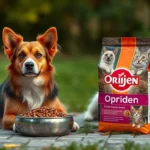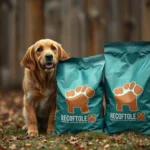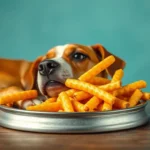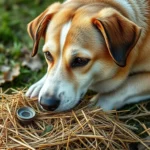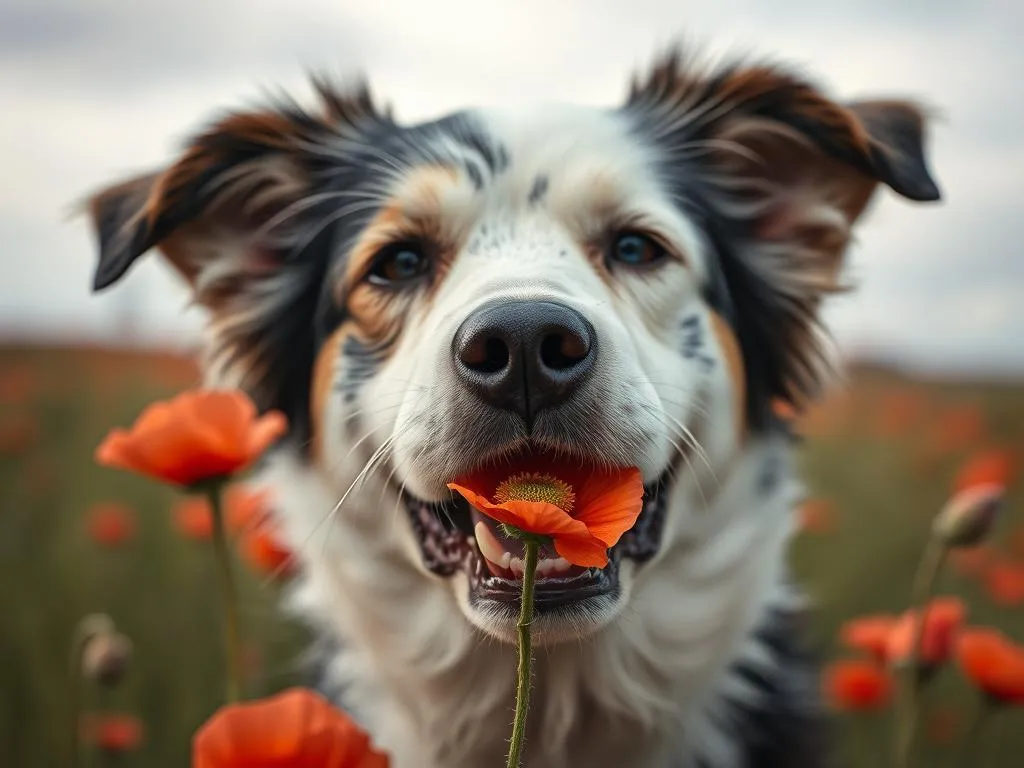
Introduction
Understanding dog nutrition is crucial for every pet owner. A proper diet not only ensures the optimal health of dogs but also contributes significantly to their well-being, longevity, and quality of life. Pet owners often find themselves in situations where they wonder if certain human foods are safe for their canine companions. One such food that has sparked curiosity is poppy seeds. In this article, we will explore whether dogs can eat poppy seeds, the potential risks involved, and what alternatives pet owners should consider.
Understanding Dog Nutrition
Essential Nutrients for Dogs
A balanced diet for dogs consists of several essential nutrients:
- Proteins: Vital for growth, maintenance, and repair of tissues.
- Fats: Provide energy and support cell structure.
- Carbohydrates: Serve as a source of energy and aid in digestive health.
- Vitamins and Minerals: Necessary for various bodily functions, including immune response and bone health.
The Role of Diet in Dog Health
Diet plays a significant role in a dog’s overall health. Proper nutrition impacts growth and development in puppies, supports healthy weight management in adults, and helps maintain vitality in senior dogs. It’s essential to provide a balanced diet tailored to the dog’s life stage, breed, and health status.
Common Human Foods and Their Effects on Dogs
Safe Foods
Some human foods are safe and even beneficial for dogs. These include:
- Fruits and Vegetables: Apples, carrots, blueberries, and green beans are excellent options.
- Cooked Meats: Chicken, turkey, and lean beef can provide essential proteins and nutrients.
Foods to Avoid
Conversely, several human foods can be toxic or harmful to dogs. Notable examples include:
- Toxic Foods: Chocolate, grapes, and raisins can have severe effects.
- Potentially Harmful Foods: Onions and garlic can cause gastrointestinal upset or more serious health issues.
Poppy Seeds: An Overview
What Are Poppy Seeds?
Poppy seeds are small, blue-black seeds derived from the opium poppy plant (Papaver somniferum). They are commonly used in baking and cooking due to their nutty flavor and crunchy texture. Nutritionally, poppy seeds contain healthy fats, protein, and various vitamins and minerals, making them a popular choice in human diets.
Uses of Poppy Seeds in Human Cuisine
In human cuisine, poppy seeds are used in a variety of dishes, including:
- Baked Goods: Poppy seed muffins, bagels, and cakes.
- Salads and Dressings: Adding texture and flavor to salads.
While poppy seeds offer numerous benefits to humans, their safety for dogs remains questionable.
Can Dogs Eat Poppy Seeds?
Toxicity and Health Risks
When considering if dogs can eat poppy seeds, it’s essential to analyze the compounds present in them. Poppy seeds can contain trace amounts of opiates, such as morphine and codeine, which can pose health risks to dogs. Although the levels in poppy seeds are typically low, ingestion can lead to adverse effects.
Expert Opinions
Veterinarians generally advise against feeding dogs poppy seeds due to their potential toxicity. While there may be anecdotal evidence of dogs consuming small amounts without immediate side effects, the risk of long-term health complications remains a concern. It’s always better to err on the side of caution when it comes to your pet’s health.
Signs of Poppy Seed Toxicity in Dogs
Immediate Symptoms
If a dog ingests poppy seeds, symptoms of toxicity may manifest shortly after. Common immediate symptoms include:
- Gastrointestinal Distress: This may include vomiting or diarrhea.
- Lethargy or Unusual Behavior: Dogs may appear tired or less responsive.
Long-term Effects
Long-term effects of ingesting poppy seeds can vary. Some potential concerns include:
- Potential for Addiction or Dependence: Given the opiate content, there is a risk of addiction.
- Other Health Complications: These could range from digestive issues to more severe neurological effects.
What to Do if Your Dog Ingests Poppy Seeds
Immediate Actions to Take
If you suspect your dog has ingested poppy seeds, it’s essential to act quickly. Here’s what you should do:
- Assess the Situation: Determine how much was ingested and your dog’s weight.
- Contact a Veterinarian or Pet Poison Control: They can provide specific guidance based on the situation.
Treatment Options
Depending on the amount ingested and the symptoms displayed, treatment options may include:
- Inducing Vomiting: In some cases, this may be necessary to prevent further absorption of toxins.
- Medical Treatments and Monitoring: Your veterinarian may want to monitor your dog for any adverse reactions and provide supportive care if needed.
Alternatives to Poppy Seeds for Dogs
Safe Treat Options
If you’re looking for safe snack alternatives for your dog, consider these options:
- Carrots: Crunchy and full of vitamins.
- Pumpkin: Great for digestive health.
- Peanut Butter: Always check for xylitol-free products.
Homemade Dog Treat Recipes
Creating homemade dog treats is a fun way to ensure your pet is consuming safe ingredients. Here are a couple of simple recipes:
Peanut Butter and Banana Dog Treats
– Ingredients: 1 ripe banana, 1/2 cup peanut butter, 1 1/2 cups whole wheat flour.
– Instructions: Mash the banana, mix in peanut butter, and gradually add flour. Roll out and cut into shapes. Bake at 350°F for 20 minutes.
Sweet Potato Chews
– Ingredients: 1 sweet potato.
– Instructions: Slice sweet potato into thin strips and bake at 250°F for 3 hours until dried.
Conclusion
Understanding dog nutrition is paramount for all pet owners. While some human foods can be beneficial, others, like poppy seeds, pose potential health risks. It’s crucial to be informed about what foods are safe and which ones to avoid to ensure your furry friend remains healthy and happy. Consulting with a veterinarian regarding dietary choices will help maintain a balanced and safe diet for your dog.
FAQs
Can small amounts of poppy seeds be safe for dogs?
Small amounts might not cause immediate harm, but it’s best to avoid them due to potential toxicity.
What should I do if my dog accidentally eats a food that is harmful?
Contact your veterinarian or pet poison control immediately for guidance on the next steps.
Are there any dog breeds more susceptible to food toxicity?
Some breeds may have a higher sensitivity to specific foods, but it can vary from dog to dog.
How can I ensure my dog’s diet is balanced?
Consult with a veterinarian to determine the best diet based on your dog’s age, size, and health status, and consider high-quality commercial dog food or balanced homemade meals.

